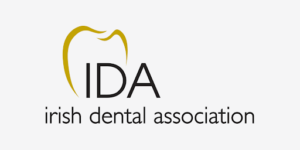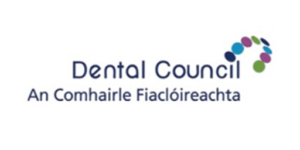Out of Hours Dental Emergency
Out of hours Emergency
Dental emergencies can happen at the worst of times, and can be very distressing. We provide an out of hours emergency service for genuine dental emergencies. Please see below to assess your situation
- You need to go straight to A&E if you have:
- You need dental treatment if you have:
- A non-urgent dental emergency includes:
Go to A&E for:
- Facial swelling affecting your vision, breathing or preventing your mouth opening more than two finger width
- Trauma causing loss of consciousness, double vision or vomiting
Seek Dental Treatment for:
- Facial swelling
- Bleeding after an extraction that does not stop after 20 mins of solid pressure with gauze.
- Bleeding due to dental trauma
- Severely broken tooth that cannot be managed with pain relief
- Toothache that is preventing sleep/eating combined with swelling
- Severe wisdom tooth pain and infection
Non-urgent Dental Emergencies:
- Loose or lost crowns/bridge/implant crown or veneer
- Bleeding gums
- Broken, rubbing or lose denture
- Broken, loose or lost filling
- Chipped tooth with no pain and no soft tissue trauma
Frequent Dental Emergencies
Facial swellings can come about for a number of reasons other than teeth such as infected skin cysts or blocked salivary glands. However, if there is associated tooth pain or swelling around the gum it is likely to be a dental problem. Facial swellings that have come about over a short period of time, are usually a sign of infection which may need antibiotic treatment.
If the abscess is draining, rinse your mouth regularly with hot salty water and take painkillers if needed. Anti-inflammatory analgesics such as Ibuprofen are the best for toothache as the pain is usually caused by swelling. If you can’t take them – if you are allergic to aspirin, for example – then paracetamol is the next best thing. Please contact the clinic when a facial swelling occurs.
If your tooth has chipped and is not painful, most likely this will be fine to leave until you can see us for a restoration. If the broken tooth is sharp, sensitive or cutting your tongue, you can purchase a temporary filling material at your local chemist. To use this follow the instructions as directed, but ensure your tooth is dry and place the filling material over the surface that is exposed. If required take regular painkillers to help with pain. Anti-inflammatory analgesics such as Ibuprofen are the best for toothache as the pain is usually caused by swelling. If you can’t take them – if you are allergic to aspirin, for example – then paracetamol is the next best thing.
While waiting to have the tooth restored, maintain a good oral hygiene routine; brushing your teeth regularly, flossing and/or using interdental brushes combined with a low sugar diet to prevent any decay from occurring or existing decay from getting worse.
Take regular painkillers and rub desensitising toothpaste (such as Sensodyne or Colgate Sensitive) around the tooth and repeat this several times through the day. Maintain your excellent oral hygiene routine and make sure to use fluoridated toothpaste when brushing twice daily.
Again, maintain a good oral hygiene routine, combined with a low sugar diet to ensure the tooth underneath does not get decayed. If required you can buy a dental emergency kit from a chemist and this can be used to stick a crown/veneer/bridge back in temporarily. At the very least, cover the tooth or tooth peg left with this temporary filling material until we are able to see you.
To help keep the area clean, rinse your mouth with warm salty water and take regular painkillers. Anti-inflammatory analgesics such as Ibuprofen are the best for toothache as the pain is usually caused by swelling. If you can’t take them – if you are allergic to aspirin, for example – then paracetamol is the next best thing. Keeping your head raised (Sleeping with a number of pillows) can help alleviate inflammation in the area. If you have a bad wisdom tooth infection, you will need antibiotics, so please call the clinic.
Dental Trauma – tooth injury
What to do if a tooth has been knocked out
If it’s an adult (permanent) tooth:
- Hold it by the white bit that sticks out of the gum (the crown). Do not touch the root.
- Lick it clean if it’s dirty, or quickly rinse it in cold running water for no more than 10 seconds.
- Try to put it back into the hole in the gum. If it does not go in easily:
- put it in milk
- put it in saliva – by spitting into a container (if its your tooth) or having your child spit into a container (if its theirs)
- hold it in your cheek until you see the dentist – but do not have younger children do this in case they swallow it
- If it goes back in, bite down gently on a clean cloth to hold the tooth in place.
If its a baby tooth:
do not put it back in – it could damage the tooth growing underneath
If you do not know if its an adult or baby tooth:
put it in milk or saliva (by having your child spit into a container) and bring it to the dentist
What the dentist will do
If you put the tooth back in, the dentist will check it’s in the right place and move it if they need to.
If you brought the tooth in milk or saliva, we will clean it and put it back in.
We then fix the tooth to the teeth either side of it to hold it in place (splinting).
You’ll probably need to come back after a couple of weeks to have the splint removed.




